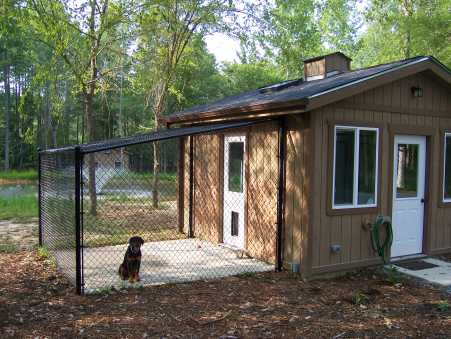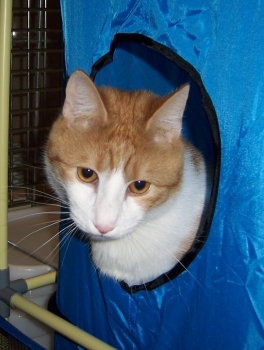Geriatric Pets
Boarding Geriatric Pets
Being away from home can be more stressful for older pets than for younger ones. They are more set in their ways, and their patterns more deeply ingrained. Dogs and cats love patterns - knowing what is going to happen, and when - and changing those patterns can upset them. Additionally, geriatric pets are more likely to have underlying health problems. Deafness and blindness are not uncommon in senior pets. Kidney, heart, and liver disease are often associated with age. Arthritis and other degenerative conditions can make it difficult for them to get around. Boarding, especially if your pet has never been boarded or boarded infrequently, may cause these conditions to become apparent or worsen.
Caring for Older or Stressed Pets
We have steps in place to help your pet cope with stress. They are provided with additional attention, extra bedding and soft music. Special diets can be prepared to meet the nutritional needs of a senior pet, or you may choose to provide the food of your choice.
We want your senior pet to go home happy and healthy. Unfortunately, it is not uncommon for a dog or cat to become stressed, which can result in illness. We are prepared for these situations. Discuss your pet’s individual needs and health conditions in advance, along with what to do if something changes.
Remember, we are in the business of boarding because we love of animals. We want boarding to be a pleasant experience for you and your senior pet.
Planning to Board
Speak with us regarding the care of your geriatric pet.
Be honest about any known medical condition your pet may have. We will be better able to recognize problems with a particular condition if we know what to look for. Special care may need to be taken when handling or feeding the pet as well.
Take along all medications your pet may need during the stay. Be sure they are all labeled appropriately. If your dog or cat is on several medications or a complicated dosage schedule, a small chart or calendar showing the medication(s) schedule may help us to keep the treatments on time. Be sure your pet’s vaccinations are all up to date.
Leave an emergency number where you can be reached, as well as your veterinarian’s name and number. If a problem arises during your pet’s stay, we must be able to reach you or make a decision based on your requests. If we must seek veterinary care for your pets, be aware that you, as the owner, are financially responsible for your pet’s treatment. How could my senior pet become ill? He was fine when I left him! Many older pets have underlying conditions or undiagnosed illnesses that are not readily apparent.
Stress Plays an Important Role Regarding Your Pet’s Health
Stress can be caused by a variety of factors: being away from home and loved ones, a new environment, other dogs and cats, new noises, different smells, the people taking care of the pet, a change in food or water...the list goes on. Whatever triggers a stress reaction also triggers physical changes in your pet.
The pituitary gland releases a hormone called ACTH into the bloodstream, which in turn signals the adrenal glands to release epinephrine and other natural steroids. Each of these products serves to get the body ready to react (the old “fight or flight” pattern). So the hormones have effects on various body systems. For example, blood pressure increases and the heart has to work harder; the kidney and urinary systems slow down; the immune system, which fights off disease and infections, shuts down temporarily. We may see physical signs of vomiting, diarrhea, lack of appetite, lethargy, or increased respiration.
Stress helps animals (and people) cope with a situation. However, when stress is not relieved or reduced sufficiently, the body does not have a chance to rest and cleanse itself of the excessive hormones. The possibility of shut down or failure of one or more body systems becomes greater as the stress continues, especially if there is any underlying or previous disease. Since the immune system stops working, even bacteria or viruses that might not normally affect your pet can now cause illness. This is why your pet can become ill away from home, even when he or she appeared normal when you dropped them off.
But the Boarding Facility Must Have Made Them Sick...
In reality, no one person can make your pet ill. We are responsible for providing a clean, safe environment and monitoring the health of the pets left in their care. Unfortunately, we have no way of preventing a pet from becoming ill from the effects of stress. We will do everything in our power to ensure that boarding is a pleasant experience for you and your senior pet.






